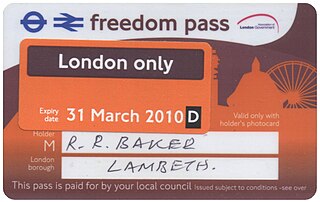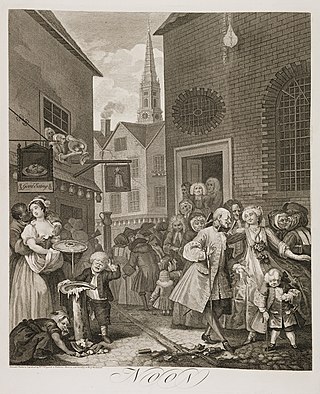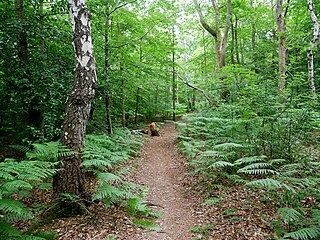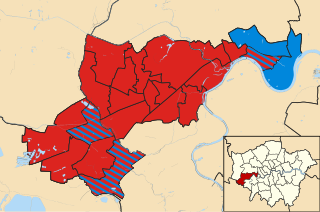The lists of people from London, England is divided by London boroughs. A person from London is known as a Londoner!
|
The lists of people from London, England is divided by London boroughs. A person from London is known as a Londoner!
|

London is the capital and largest city of both England and the United Kingdom, with a population of 8,866,180 in 2022. The wider metropolitan area is the largest in Western Europe, with a population of 14.9 million. London stands on the River Thames in southeast England, at the head of a 50-mile (80 km) estuary down to the North Sea, and has been a major settlement for nearly 2,000 years. Its ancient core and financial centre, the City of London, was founded by the Romans as Londinium and has retained its medieval boundaries. The City of Westminster, to the west of the City of London, has been the centuries-long host of the national government and parliament. London grew rapidly in the 19th century, becoming the world's largest city at the time. Since the 19th century, the name "London" has referred to the metropolis around the City of London, historically split between the counties of Middlesex, Essex, Surrey, Kent, and Hertfordshire, which since 1965 has largely comprised the administrative area of Greater London, governed by 33 local authorities and the Greater London Authority.

The mayor of London is the chief executive of the Greater London Authority. The role was created in 2000 after the Greater London devolution referendum in 1998, and was the first directly elected mayor in the United Kingdom.
Londoner may refer to:

Samuel Selvon was a Trinidad-born writer, who moved to London, England, in the 1950s. His 1956 novel The Lonely Londoners is groundbreaking in its use of creolised English, or "nation language", for narrative as well as dialogue.

Freedom Pass is a concessionary travel scheme, which began in 1973, to provide free travel to residents of Greater London, England, for people with a disability or over the progressively increasing state pension age. The scheme is funded by local authorities and coordinated by London Councils. Originally the pass was a paper ticket, but since 2004 it has been encoded on to a contactless smartcard compatible with Oyster card readers, and since 2010, also ITSO card readers.
The Lonely Londoners is a 1956 novel by Trinidadian author Samuel Selvon. Its publication was one of the first to focus on poor, working-class black people following the enactment of the British Nationality Act 1948 alongside George Lamming's (1954) novel The Emigrants. The Lonely Londoners was included on the "Big Jubilee Read" list of 70 books selected by a panel of experts, and announced in April 2022 by the BBC and The Reading Agency, to celebrate Queen Elizabeth II's platinum jubilee in June 2022.

This article covers the history of London from the Norman conquest of England in 1066 to the death of Richard III in 1485. During this period, London became the capital of England, as monarchs held Parliament at the Palace of Westminster, beginning in 1265 and increasing over the 14th century. London appointed its first recorded Lord Mayor in this period, Henry FitzAilwin, in 1189. In the 12th century, the writer William Fitzstephen described it as florilegium urbanum — "flower of cities".

The Committee for the Relief of the Black Poor was a charitable organisation founded in London in 1786 to provide sustenance for distressed people of African and Asian origin. It played a crucial role in the proposal to form a colony for blacks in Sierra Leone. The work of the Committee overlapped to some extent with the campaign to abolish slavery throughout the British Empire.

The history of African presence in London may extend back to the Roman period.

The Tudor period in London started with the beginning of the reign of Henry VII in 1485 and ended in 1603 with the death of Elizabeth I. During this period, the population of the city grew enormously, from about 50,000 at the end of the 15th century to an estimated 200,000 by 1603, over 13 times that of the next-largest city in England, Norwich. The city also expanded to take up more physical space, further exceeding the bounds of its old medieval walls to reach as far west as St. Giles by the end of the period. In 1598, the historian John Stow called it "the fairest, largest, richest and best inhabited city in the world".

The United Kingdom took part in World War II from 3 September 1939 until 15 August 1945. At the beginning of the war in 1939, London was the largest city in the world, with 8.2 million inhabitants. It was the capital not just for the United Kingdom, but for the entire British Empire. London was central to the British war effort. It was the favourite target of the Luftwaffe in 1940, and in 1944-45 the target of the V-1 cruise missile, the V-2 rocket, and the unsuccessful V-3 "London gun".
The Pakistani community of London consist of Pakistani emigrants and their descendants who have settled in London, the capital city of England and the United Kingdom. Pakistanis in London form the largest concentrated community of British Pakistanis; immigration from regions which now form Pakistan predate Pakistan's independence.

Figures on crime in London are based primarily on two sets of statistics: the Crime Survey for England and Wales (CSEW) and police recorded crime data. Greater London is generally served by three police forces; the Metropolitan Police which is responsible for policing the vast majority of the capital, the City of London Police which is responsible for The Square Mile of the City of London and the British Transport Police, which polices the national rail network and the London Underground. A fourth police force in London, the Ministry of Defence Police, do not generally become involved with policing the general public. London also has a number of small constabularies for policing parks. Within the Home Office crime statistic publications, Greater London is referred to as the London Region.

Hayes Common is a 79-Hectare area of public open land in Hayes in the London Borough of Bromley. It is owned and managed by Bromley Council. It is Site of Metropolitan Importance for Nature Conservation, and a small area is part of the Keston and Hayes Commons Site of Special Scientific Interest. The common is an area of woodland and heath, crossed by bridleways and footpaths. Hayes Common is one of the largest areas of common land in Greater London, with 91.1 hectares of protected commons.

London independence, sometimes shortened to Londependence and Londexit, refers to a belief favouring full-fledged independence for London as a city-state separate from the United Kingdom. The idea received particular attention after the 2016 United Kingdom European Union membership referendum, in which the country at large voted to leave the European Union, but 60% of Londoners voted to remain, though the concept of an independent London had been discussed sporadically for some years before.

The 2018 Hillingdon Council election took place on 3 May 2018 to elect members of Hillingdon London Borough Council in England. This was on the same day as other local elections. The Conservative Party retained control with an increased majority.

The Ultra Low Emission Zone (ULEZ) is an area in London, England, where an emissions standard based charge is applied to non-compliant road vehicles. Plans were announced by London Mayor Boris Johnson in 2015 for the zone to come into operation in 2020. Sadiq Khan, the subsequent mayor, introduced the zone early in 2019. The zone initially covered Central London, the same area as the existing London congestion charge; in 2021, Khan extended the zone to cover the area within the North Circular and South Circular roads. In 2023 it was further extended to all of Greater London, covering over 1,500 square kilometres (580 sq mi) and approximately 9 million people.
London English is any accent or variety of English spoken in London that may refer to:

The London Blossom Garden is a memorial garden to honour the victims of the COVID-19 pandemic in London, England, planted near the London Stadium in the London Borough of Newham. The memorial represents the 32 boroughs of London and the City of London by three circles formed of 33 blossom trees. The blossom trees were chosen as the pandemic began in London in March 2020, in the springtime. It was planted by the National Trust and funded by Bloomberg L.P.

The 2022 Hounslow London Borough Council election took place on 5 May 2022. All 62 members of Hounslow London Borough Council were elected. The elections took place alongside local elections in the other London boroughs and elections to local authorities across the United Kingdom.